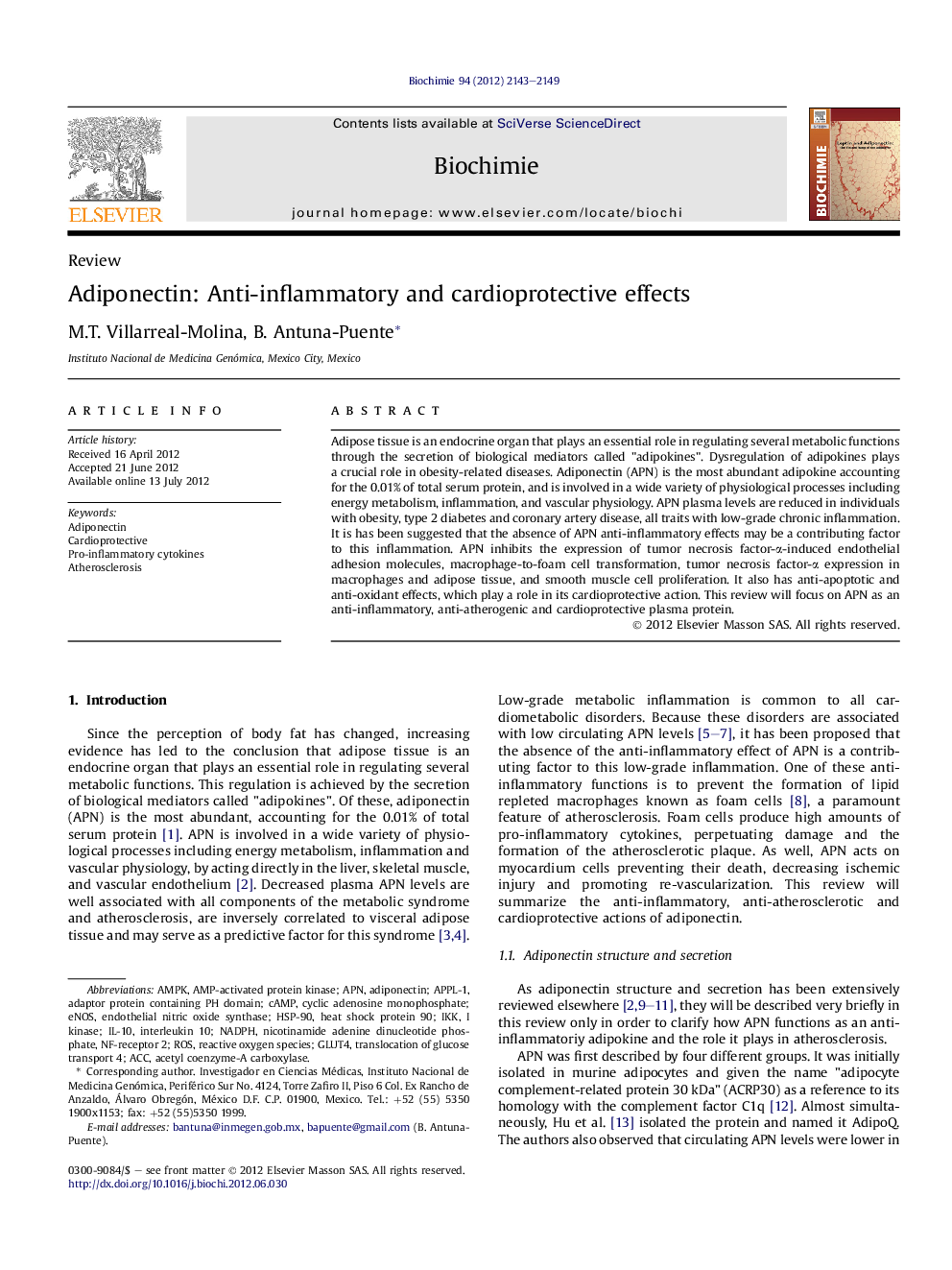| Article ID | Journal | Published Year | Pages | File Type |
|---|---|---|---|---|
| 1952300 | Biochimie | 2012 | 7 Pages |
Adipose tissue is an endocrine organ that plays an essential role in regulating several metabolic functions through the secretion of biological mediators called "adipokines". Dysregulation of adipokines plays a crucial role in obesity-related diseases. Adiponectin (APN) is the most abundant adipokine accounting for the 0.01% of total serum protein, and is involved in a wide variety of physiological processes including energy metabolism, inflammation, and vascular physiology. APN plasma levels are reduced in individuals with obesity, type 2 diabetes and coronary artery disease, all traits with low-grade chronic inflammation. It is has been suggested that the absence of APN anti-inflammatory effects may be a contributing factor to this inflammation. APN inhibits the expression of tumor necrosis factor-α-induced endothelial adhesion molecules, macrophage-to-foam cell transformation, tumor necrosis factor-α expression in macrophages and adipose tissue, and smooth muscle cell proliferation. It also has anti-apoptotic and anti-oxidant effects, which play a role in its cardioprotective action. This review will focus on APN as an anti-inflammatory, anti-atherogenic and cardioprotective plasma protein.
► Adiponectin inhibits pro-inflammatory cytokines production. ► Adiponectin acts as an anti-atherogenic factor. ► Adiponectin has anti-apoptotic and anti-oxidant effects.
